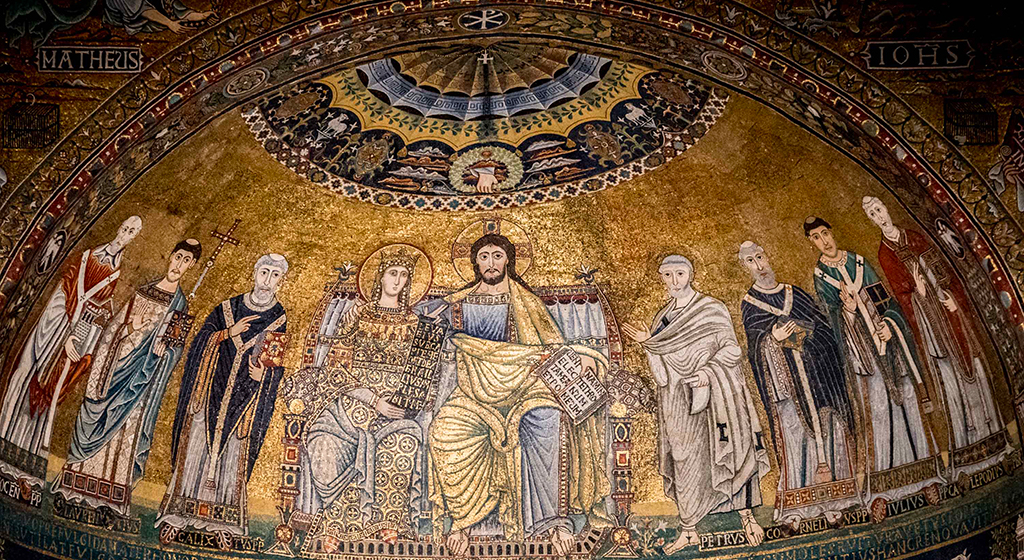Memory of the Church
Memorial of the dedication of the Cathedral of Rome, the Basilica of Saints John the Baptist and John the Evangelist in the Lateran. Prayer for the Church of Rome. Memorial of the "Crystal Night," the beginning of the most violent phase of the Nazi persecution of the Jews.
Reading of the Word of God
Alleluia, alleluia, alleluia
I am the good shepherd,
my sheep listen to my voice,
and they become
one flock and one fold.
.
Alleluia, alleluia, alleluia
John 2,13-22
When the time of the Jewish Passover was near Jesus went up to Jerusalem, and in the Temple he found people selling cattle and sheep and doves, and the money changers sitting there. Making a whip out of cord, he drove them all out of the Temple, sheep and cattle as well, scattered the money changers' coins, knocked their tables over and said to the dove sellers, 'Take all this out of here and stop using my Father's house as a market.' Then his disciples remembered the words of scripture: I am eaten up with zeal for your house. The Jews intervened and said, 'What sign can you show us that you should act like this?' Jesus answered, 'Destroy this Temple, and in three days I will raise it up.' The Jews replied, 'It has taken forty-six years to build this Temple: are you going to raise it up again in three days?' But he was speaking of the Temple that was his body, and when Jesus rose from the dead, his disciples remembered that he had said this, and they believed the scripture and what he had said.
Alleluia, alleluia, alleluia
I give you a new commandment,
that you love one another.
Alleluia, alleluia, alleluia
Today the Church celebrates the feast of the Dedication of the Basilica of Saints John the Baptist and Evangelist in the Lateran, Rome, also called the "mother" of all Churches in the world. It is a feast that takes us back to the origins of the Church and reminds us of the value and meaning of every sacred place, a place of prayer and encounter with the Lord. In the liturgy, the churches are "dedicated" to the Lord, that is, they are places that we do not dedicate to ourselves or to our own prominence, and for this reason they remain places of freedom and humanity in the world. Jesus was very clear that the temple in Jerusalem was dedicated to the Father, to God, and not to human commerce; that is why he wanted to protect that space, and he did so forcefully and decisively, so much so that the disciples recognized in his gesture of driving out the sellers and money-changers the words of the psalm: "Zeal for your house will devour me." This feast reminds us that the Lord has also made of us, of our life, a temple that must not be profaned by the logic of the market and of buying and selling. The only logic that can dwell in the house of God is that of free love. And the inhabitants of the house of God are called - as it is for the building - to dedicate their lives not to saving themselves but to saving others. Jesus suggests this perspective when he says: "Destroy this temple, and in three days I will raise it up'. Jesus was speaking of his body that would be resurrected. With these words, Jesus consecrates each body to be a temple of God, no matter how weak and fragile: but when it is inhabited by God's love, nothing can destroy it. Love is stronger than death.
